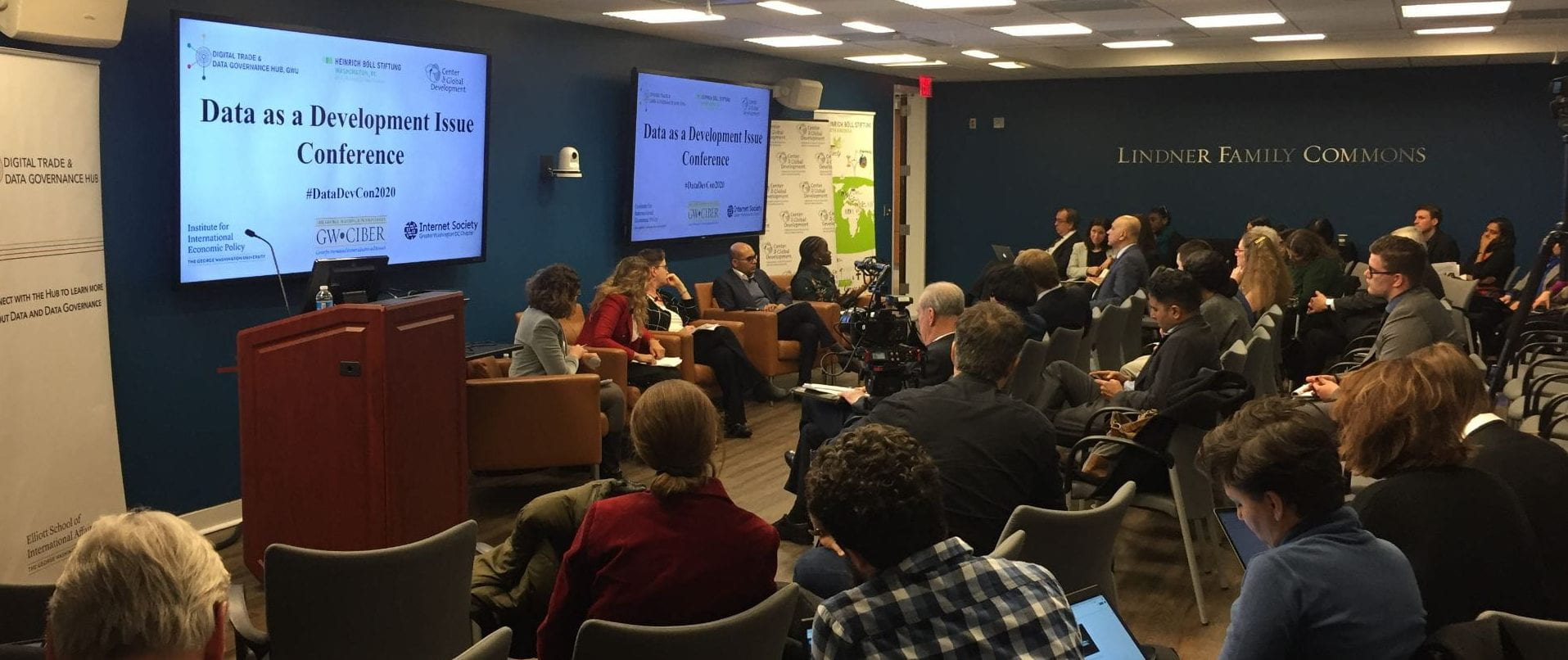The Hub works to help stakeholders and policymakers understand digital trade and data governance issues. To find out more about what the Digital Trade and Data Governance Hub does check out our What we do page.
What is data?
• Data = facts or statistics that can be transformed into information.
• How should we think about data? Some describe it as a resource or raw material; others as an asset and still others see it as a form of capital that can be shared and leveraged. Some scholars think that we should think about data as labour, while others argue that data is a form of infrastructure that can be managed to benefit people.
What are some of the types of data?

Why is data different from other goods and services?
• Data can be a good, a service or both.
• Many types of information are a global public good. If governments restrict such information → can have spillovers for human rights, scientific progress and internet stability.
• Digital trade in data occurs on a platform that is shared—a global commons.
Technological Change leading to new role for data
• Researchers have long used data to solve problems, answer questions and improve efficiency and quality of goods and services.
• Today market actors also use data to create new goods and services. These new data driven sectors are the foundation of the data-driven economy.
• Data-driven economy relies on many different types of data, but much of the data used by these market actors is personal data: data by and about people.
What is data governance?
• Norms, principles and rules governing various types of data. However, the rules governing propriety data are different from the rules governing personal data. We could find no nation with rules governing the mix of personal data with public data. In such situations, the rules governing personal data generally apply. Please see the research section of our website for an overview of nations with rules and plans governing various types of data.
Why should I care about data governance?
• How data is governed can affect our privacy, our economic security, and our sense of safety in the world.
• Any system of governance must be transparent, equitable and accountable.
Why is it important that Citizens Participate in Data Governance?
To govern data effectively, policymakers need to talk with their constituents about their concerns about data. Specifically, should discuss how various types of data should be governed, what kinds of data should and should not be shared, how data can move from one platform to another, how data can flow to other countries, and how various types of data can be mixed. Most countries have not addressed all of these issues, but many countries, including India, have tried to engage their citizens in addressing some of these issues. While India is just beginning this give and take, Canada has actually moved plans forward.

The Government of Canada tried to create a feedback loop between its citizens, firms and policymakers on data governance. In 2018, it held 30 roundtables with some 580 participants who came up with almost 2000 ideas. Building on those recommendations, in May 2019, it announced a Digital Charter for Canada based on 10 principles: 1. Universal Access: 2. Safety and Security: 3. Control and Consent: 4. Transparency, Portability and Interoperability: 5. Open and Modern Digital Government: 6. A Level Playing Field: 7. Data and Digital for Good in an ethical manner: 8. Strong Democracy: 9. Free from Hate and Violent Extremism: and 10. Strong Enforcement and Real Accountability (Government of Canada: 2019). By adhering to these principles, put forward by the Canadian people, the government helps it can maintain trust online and use the data driven economy to foster growth.
What is digital trade?
• No one set definition, but broadly speaking goods and services delivered online.
• US ITC defines it as “ the delivery of products and services over the Internet by firms in any industry sector, and of associated products such as smartphones and Internet-connected sensors. While it includes provision of e-commerce platforms and related services, it excludes the value of sales of physical goods ordered online, as well as physical goods that have a digital counterpart (such as books, movies, music, and software sold on CDs or DVDs).”
• US includes cross-border data flow language in its “digital trade” chapters in trade agreements.

